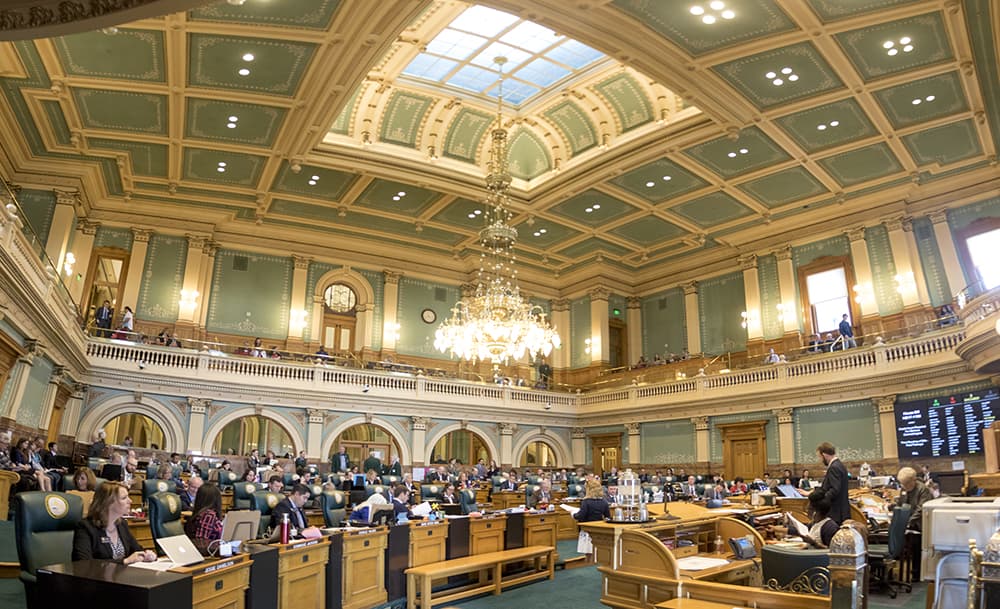Gov. John Hickenlooper signed an executive order Thursday calling for a special session to fix a problem with SB 267, an omnibus bill that reshaped key aspects of Colorado's budget.
The mistake in the drafting, first reported by Complete Colorado, affects the Regional Transportation District, the Scientific and Cultural Facilities District and districts that fund housing and public health in rural counties.
One of the bill’s provisions raised the state retail tax on marijuana from 10 percent to 15 percent, the full amount authorized by voters, and eliminated the 2.9 percent regular state sales tax on marijuana. That way, we didn’t end up with an actual marijuana tax rate of 17.9 percent. It was here that the special districts’ funding was accidentally eliminated, along with the 2.9 percent sales tax.
RTD collects a 1 percent sales tax to fund transit in the six-county Denver metro area, and the SCFD collects a 0.1 percent sales tax to fund institutions like the Denver Art Museum, the Denver Zoo, the Denver Botanic Gardens, the Denver Center for the Performing Arts and the Denver Museum of Nature and Science, along with a host of smaller cultural organizations.
For RTD, the lost revenue amounts to about $500,000 a month, or $3 million if the mistake isn't fixed until January when the legislature would normally return. An RTD spokesman told Denverite earlier this summer that the lost revenue is not affecting services and can be absorbed in the agency's reserves for the time-being.
Member institutions of the SCFD declined to discuss the concrete financial impacts.
The special session will be narrowly targeted to addressing this one issue, the governor's office said.
“Since this issue was discovered, we worked with department staff, stakeholders, sponsors, and members of the General Assembly on options to correct this unintended consequence," Hickenlooper said in a statement. "After hearing about the potential impact on citizens around the state, it is clear that this problem is best solved as soon as possible."
Speaker of the House Crisanta Duran, a Democrat like the governor, said in an emailed statement that the sponsors of the legislation are in agreement that the pot tax issue was an oversight and should be fixed.
SB 267 was being re-written in the last days of the session as part of a broader compromise whose primary goal was the reclassification of the hospital provider fee.
"Now that the governor has called a special session to resolve this issue, we owe it to the affected special districts and the people they serve to correct this mistake as quickly and efficiently as possible. We’ll be ready to go in October," she said.
However, state Sen. Jerry Sonnenberg, a Sterling Republican who was a main author of the bill, said he only heard about the special session after the executive order was signed.
"This is not the way government should work in Colorado," he said in an emailed statement. "Calling a special session without an understanding of the game plan or proper consultation with the legislators involved is an irresponsible use of taxpayer dollars."
Hickenlooper declined to ask for a special session in May to push legislators to come up with a transportation package after a bipartisan bill failed in the Republican-controlled Senate.













